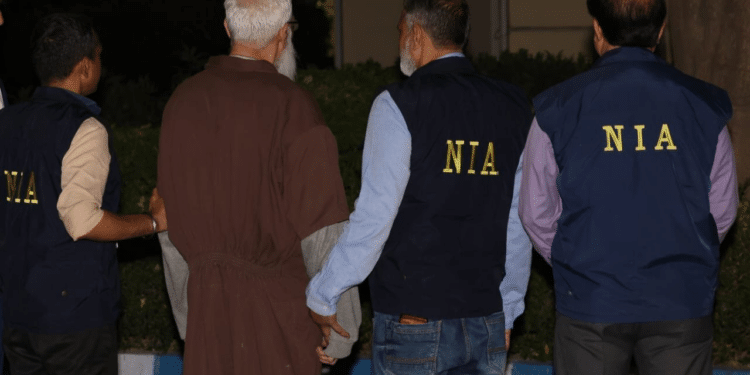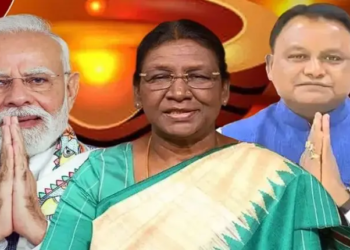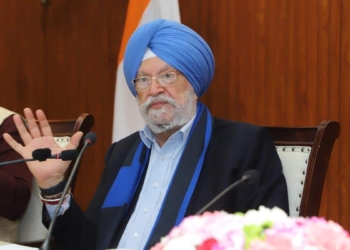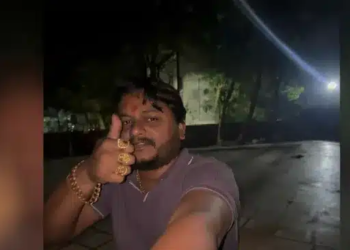The National Investigation Agency (NIA) has moved swiftly to seek 20-day custody of Tahawwur Hussain Rana, a key conspirator in the 2008 Mumbai terror attacks, following his extradition from the United States to India.
The development marks a significant milestone in India’s long-standing efforts to bring the perpetrators of the 26/11 attacks to justice, over 16 years after the deadly assault that claimed 166 lives and injured hundreds.
Rana, a 64-year-old Pakistani-born Canadian national, arrived at Indira Gandhi International Airport (IGIA) in New Delhi on April 10, 2025, under tight security. He was formally arrested by the NIA immediately upon arrival, as confirmed by agency officials. The NIA’s request for custody was presented before a special court in Delhi, with the agency citing the need for extensive interrogation to further unravel Rana’s role in the terror plot orchestrated by the Pakistan-based Lashkar-e-Taiba (LeT) terrorist group.
The 2008 Mumbai attacks, carried out by 10 heavily armed terrorists from the Pakistan-based Lashkar-e-Taiba (LeT), left 166 people dead, including six Americans, and over 300 injured. The siege targeted iconic locations such as the Taj Mahal Palace Hotel, Chhatrapati Shivaji Terminus (CST), and the Chabad House, shaking India and the world. Rana, a Chicago-based businessman, was accused of playing a pivotal role in the conspiracy, working closely with co-conspirator David Coleman Headley and operatives of LeT and Harakat-ul-Jihad-al-Islami (HUJI).
Rana’s arrest follows years of diplomatic and legal efforts under the 1997 India-US Extradition Treaty. He was handed over to Indian authorities in Los Angeles on April 8, 2025, after exhausting all legal appeals in the US. A special plane, escorted by teams from the NIA and the National Security Guard (NSG), brought Rana to Delhi, where he was immediately taken into custody.
The NIA stated that Rana’s arrest is a “major step in India’s efforts to bring individuals involved in terrorism to justice, irrespective of which part of the world they had fled to.”
The Road to Extradition
Rana’s journey to Indian custody began with his arrest by the FBI in October 2009 in the US, initially on charges related to an abortive terror plot against a Danish newspaper. In 2011, he was convicted for providing material support to LeT but acquitted of direct involvement in the Mumbai attacks. Despite this, India pursued his extradition, citing his role in facilitating Headley’s reconnaissance missions in Mumbai. Headley, who is serving a 35-year sentence in the US, testified against Rana, revealing how Rana allowed him to use his Chicago-based immigration firm as a cover to scout targets in India between 2006 and 2008.
The extradition process faced multiple hurdles, including Rana’s appeals in US courts. In 2020, he was briefly released on compassionate grounds after testing positive for COVID-19, only to be re-arrested following India’s extradition request. A US court approved his extradition in 2023, a decision upheld after further legal challenges. The US Justice Department emphasized that Rana’s extradition was a “critical step toward seeking justice” for the victims of the 26/11 attacks, including the six Americans killed.
Under the India-US Extradition Treaty, India is restricted to prosecuting Rana solely for the 26/11-related charges outlined in the extradition request, which include criminal conspiracy, committing terrorist acts, and murder. The treaty also ensures that Rana is protected from torture while in custody, a condition closely monitored by both nations.
Rana’s Role in the 26/11 Attacks
Investigations by the NIA and US authorities revealed that Rana was deeply involved in the planning of the Mumbai attacks. Born in Pakistan in 1961, Rana served in the Pakistan Army Medical Corps before migrating to Canada in the 1990s, where he gained citizenship. He later settled in Chicago, running an immigration services firm. It was through this business that Rana facilitated Headley’s travel to India, providing him with a cover to conduct surveillance on potential targets.
The NIA’s statement highlighted Rana’s connections with LeT and HUJI, noting that he had been in contact with operatives since at least 2005. Former Union Home Secretary RK Singh stated, “Interrogating Rana will reveal information on the role of Pakistan’s ISI in the attack and the presence of sleeper cells in India.” The 26/11 attacks, often referred to as India’s 9/11, were meticulously planned, with Rana’s contributions enabling the terrorists to execute their deadly mission over 60 hours.
Public and Political Reactions
The arrest has sparked widespread reactions across India. The Bharatiya Janata Party (BJP) hailed the extradition as a testament to the government’s “no mercy for terrorists” stance, with a spokesperson stating, “In New India, we seek revenge for the 2008 Mumbai attack.” The Centre has appointed Narendra Mann as the Special Prosecutor in the case, signalling its intent to ensure a swift trial.
However, opinions vary. Mohammed Taufiq, a survivor of the 26/11 attacks who saved many lives and is known as ‘Chhotu Chaiwala,’ urged authorities to “hang terrorists like Rana swiftly, within days,” rather than keeping him in custody with leniency. On social media, users expressed a mix of relief and frustration, with some pointing to the 17-year delay in bringing Rana to justice.
What’s Next for Rana?
Following his arrest, Rana underwent a medical check-up and was taken to the NIA headquarters for questioning. He was produced before a special court in Patiala, where NIA sought 20-day custody of Tahawwur Hussain Rana. The court proceedings, already underway as of April 10, 2025, involve senior legal officials, including Special NIA Judge Chander Jit Singh and prosecutors Dayan Krishnan, Narendra Mann, and Piyush Sachdeva.
Rana’s trial is anticipated to shed further light on the broader network behind the 26/11 attacks, including the involvement of Pakistan-based operatives like LeT chief Hafiz Saeed and Zaki-ur-Rehman Lakhvi, both of whom remain at large. The case also underscores the importance of international cooperation in combating terrorism, with the US and India working closely to ensure justice for the victims of one of the deadliest terror attacks in modern history.
As India prepares to prosecute Rana, the world watches closely, hoping that this arrest will bring closure to the families of the 166 victims and serve as a deterrent to future acts of terrorism.






























